2024 WBG Short Course
Our most recent WBG Short Course was held Nov. 12-14. The course was presented online in real-time and included opportunities for Q&A with the instructors.
Course Objectives
- Provide instruction on the fundamentals of SiC and GaN materials, device fabrication and reliability, and power electronics applications.
- Participants will gain proficiency through instruction on WBG fundamentals and application-specific case studies.
Course Highlights
Covering 15 topics over five days, we virtually hosted a total of more than 90 attendees, from a dozen countries — Canada, Denmark, Germany, Italy and India, to name a few — at our 2024 WBG Short Course.
Speakers
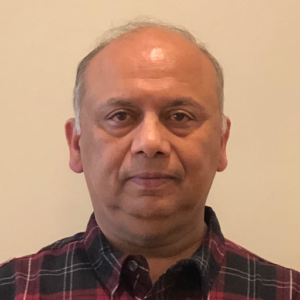
Anant Agarwal
Professor, Electrical and Computer Engineering
Ohio State University
Topic: Electrical Screening of Commercial SiC Power Devices: An Urgent Issue
- Extrinsic defects
- TDDB measurements on commercial MOSFETs from various
- vendors
- Wafer level electrical screen
- Package level burn-in
Biography
Prof. Anant Agarwal joined the ECE Dept. at OSU in 2017. Previously, he was Senior Advisor for Wide Band Gap semiconductors at the US DoE where he helped create and manage four programs (worth $125M) related to WBG technology and their applications including PowerAmerica, Next Generation of Electric Machines (I and II), and Graduate Traineeships. His leadership at DoE has driven the manufacturing and adoption of wide band gap devices in the US and has put US in a leadership position. From 1999 to 2013, he was R&D Manager for Silicon Carbide power devices at Cree Inc. where he developed and transferred to manufacturing SiC power diodes and MOSFETS in the 600 V to 1700 V range. From 1990-1999, he was a Fellow at Northrop Grumman Science and Technology Center, Pittsburgh. He was elected an IEEE Fellow in 2012 for his lifetime contributions to Wide Band Gap technologies. His lifetime goal has been to successfully commercialize WBG power devices and resurrect the US domestic power electronics industry while educating the next generation of researchers.
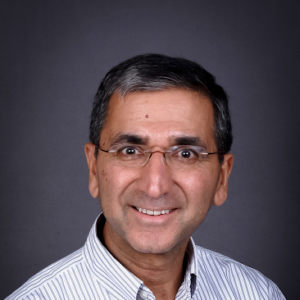
Sandeep Bahl
Distinguished Member of Technical Staff
Texas Instruments
Topic: Reliable GaN FETS for Power Supply Applications
Biography
Sandeep Bahl has a solid industry track record in semiconductor technologies. He is focusing on the ramp and acceleration of GaN technology, to bring reliable power electronics products to market. Since traditional reliability testing does not cover use cases of power electronics, he has developed methodologies to know that GaN products will be reliable in all kinds of applications. He works with customers to understand their use-cases, assesses the operational impact of the system-level stresses on devices, and drives efforts across technology teams to assure high-quality parts.
Sandeep played a key role in the GaN industry standardization effort, which led to the formation of the JEDEC JC70 committee and the increasing market adoption of GaN. He serves as co-chair of the JC70 GaN reliability task group and led the first JEDEC GaN reliability guideline, JEP180. He co-founded TI’s GaN product line and co-invented TI’s direct-drive GaN architecture. Sandeep has a PhD from MIT and is a distinguished member of technical staff at TI.
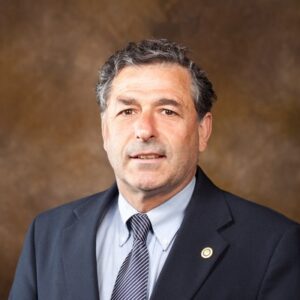
Juan Carlos Balda
Former Department Head of Electrical Engineering
University of Arkansas
Topic: Potential Applications of SiC MOSFETs in Electric Power Distribution Systems
Biography
Juan Carlos Balda (IEEE M’78 SM’94, LM’2022) received his B.Sc. in Electrical Engineering from the Universidad Nacional del Sur (Bahía Blanca, Argentina) in 1979, and his Ph.D. degree in Electrical Engineering from the University of Natal (Durban, South Africa) in 1986. He was first employed as a researcher and a part-time lecturer at the University of Natal until July 1987. He spent two years as a visiting Assistant Professor at Clemson University, South Carolina. He has been a full-time faculty member at the University of Arkansas at Fayetteville since July 1989 until retiring in July 2023 as University Professor, Department Head, and associate director for applications of the National Center for Reliable Electric Power Transmission (NCREPT). His main research interests are Power Electronics, Electric Power Distribution Systems, Motor Drives and Electric Power Quality. He is a life member of the IEEE, member of the Power Electronics, and Power & Energy Societies, and the honor societies Eta Kappa Nu and Tau Beta Pi. He is also the chair of IEEE PELS Technical Committee 5 on Sustainable Energy Systems and was faculty advisor to the local chapter of the IEEE Power Electronics Society.

Elif Balkas
Chief Technology Officer
Wolfspeed
Topic: Silicon Carbide Substrates: Advantages, Challenges and Solutions
- Motivation for SiC
- SiC advantages in power electronics
- SiC substrate technologies and processing
- SiC defects, surface quality, flatness
Biography
As Chief Technology Officer at Wolfspeed, Dr. Elif Balkas is responsible for building upon the company’s strong technology foundation in wide bandgap (WBG) materials, driving technological improvements and coupling them with manufacturing excellence to yield products with high quality and reliability as Wolfspeed continues to grow as the leader in Silicon Carbide (SiC) and gallium nitride (GaN) materials for power and RF device applications.
Elif has more than 20 years of experience in the WBG materials field in the technology industry. Prior to her current role at Wolfspeed, she served in variety of leadership positions in R&D and operations, dedicating most of her time to developing Silicon Carbide crystal growth and surrounding technologies that are scalable for manufacturing purposes and that enable more efficient and powerful electronic systems.
Prior to Wolfspeed, Elif served as a scientist at Intrinsic Semiconductor where she was responsible for GaN and Silicon Carbide epitaxy products development with a focus on high-quality, efficient and effective processes.
Elif co-founded the Women’s Initiative at Wolfspeed to encourage, develop and support women who will lead the way in innovation and execution in every aspect of the business and community, and served as the leader of the Professional Development Focus to create an environment where everyone’s perspectives, ideas and contributions matter. She continues to serve on the Women’s Initiative Steering Committee to foster diversity at all levels to create better results for Wolfspeed and its community.
Elif has a Ph.D. in Materials Science with a minor in Electrical and Computer Engineering. She earned her degree from North Carolina State University in GaN crystal growth via physical vapor transport. Elif also completed executive education at The Wharton School, focusing on product management and strategy, scaling a business, and leadership development.
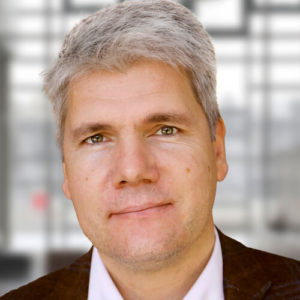
Peter Friedrichs
Vice President of SiC
Infineon Technologies
Topic: How SiC Power Devices Shape the Future of Power Electronics
- Power electronics in the energy grid for 2050
- E-mobility and wide band gap technologies
- Benefits of SiC devices in today’s applications
- New solutions and innovation enabled by SiC devices
Biography
Dr. Peter Friedrichs was born in 1968 in Aschersleben, Germany. After achieving his Dipl.-Ing. in microelectronics from the Technical University of Bratislava in 1993, he started Ph.D work at the Fraunhofer Institut FhG-IIS-B in Erlangen. His focus area of expertise was the physics of the MOS interface in SiC power MOSFETs. In 1996 he joined the Corporate Research of Siemens AG and was involved in the development of power switching devices on SiC, mainly power MOSFETs and vertical junction FETs. On March 1st, 2000, Dr. Peter Friedrichs joined SiCED GmbH & Co. KG, a joint venture of Siemens and Infineon that originated from the former Siemens research group. Starting in July 2004, he was the managing director of SiCED, responsible for all technical issues. In 2009 Dr. Friedrichs achieved the Dipl.-Wirt.-Ing. from the University of Hagen. After the integration of SiCED’s activities into Infineon, he joined Infineon as Senior Director Silicon Carbide from April 1st, 2011, and is now Vice President of SiC at Infineon Technologies.
Dr. Friedrichs is a member of the ECPE board and acts as co-chair for the JEDEC JC70.2 committee. He holds numerous patents in the field of SiC power devices and technology and is an author or co/author of more than 50 scientific papers and conference contributions.

David Levett
Consultant
Topic: Optimizing SiC MOSFET Chip and Packaging Design to Match Specific Application Requirements
Biography
Dr. David Levett has 35 years of power electronics design experience in applications ranging from drives to alternative energy, and since 2022 has been power electronics architect for Rockwell Automation. From 2008 to 2022, he was with Infineon in North America as a power electronics design and applications engineer working with power converters for traction, solar and motor drives, and gate drives utilizing Silicon IGBTs, SiC diodes, and SiC MOSFETs. Dr. Levett also worked in stack protection, mechanical assembly, thermal system evaluation, and EMI mitigation. Prior to joining Infineon in 2008, he spent 20 years at Parker Hannifin and Schneider Electric working on the design of IGBT-based power converters and specializing in switched reluctance, servo, induction, and modular drive systems in the 5Hp – 500Hp power range, and in grid tie and vehicle traction converters.
Dr. Levett enjoys conceptual designs and design reviews, and is particularly skilled in the field of power electronics and design, as well as grid-tie power converters in solar, wind, and battery. He earned his Ph.D. in Electrical Engineering in 1986 from the University of Southampton, England.
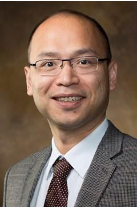
Fang Luo
Empire Innovation Associate Professor
Stony Brook University
Topic: Advanced Packaging and Optimization for High Power WBG Modules
Biography
Dr. Fang Luo (S’06- M’10- SM’13) is SUNY Empire Innovation Associate Professor in the ECE Department and Spellman High Voltage Power Electronics Lab director at Stony Brook University, Stony Brook, New York. His research interests include high voltage, high power-density converter design, high-density power quality and EMI control, and advanced power module packaging/integration for wide band-gap devices. Dr. Luo is a senior member of IEEE. He holds three US patents and has authored/co-authored more than 50 journal papers and 150 peer-reviewed conference papers, and one book. He is an Associate Editor of IEEE Transactions on Power Electronics. He is a recipient of the NSF CAREER Award. He was an Assistant Professor in the Electrical Engineering Department at the University of Arkansas (17’-20’) and a research assistant professor at the Ohio State University (14’-17’).
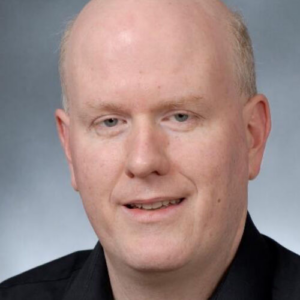
Mike MacMillan
Technical Consultant
MacMillan Consulting
Topic: Silicon Carbide Epitaxy Technology
- SiC epitaxy – basics of growth
- Substrates and growth parameters
- SiC epitaxy tools
- Next generation tools and techniques
- Characterization techniques and requirements for
- commercial epitaxy
- Thickness and doping accuracy and uniformity
- Defect types and control
Biography
Dr. Michael MacMillan has 25+ years SiC epitaxy experience, R&D and commercial, 60+ SiC/WGB peer reviewed publications, and 3 US patents. He is currently a private consultant (MacMillan Consulting) in the field of SiC materials and epitaxy. Prior to consulting, he was Technical Director, SiC at Veeco, formerly Epiluvac, working on process development for the SiC epitaxy tool while also working with sales and marketing to explain the features and benefits of Veeco tools to customers. Prior to Veeco, he was the Director of Silicon Carbide Epitaxy at Global Power Technologies Group (a.k.a. SemiQ) where he chose a green site for a SiC epitaxy operation, designed the facility and directed construction, specified equipment, recruited, and trained team, and coordinated the startup of a class 10 clean room with support infrastructure and characterization equipment. He was responsible for all SiC epitaxy operations, including custom epitaxy for R&D and low volume manufacturing. Later, as Chief Epitaxial Scientist he worked to develop next generation epitaxial products and characterization techniques focused on thicker epitaxial layers. Prior to SemiQ, he was the lead Global Applications Engineer and a Senior SiC epitaxy Specialist at Dow Corning, now SK Siltron. He established and enabled SiC epitaxial capability with chlorosilane chemistry and developed and implemented 100 mm and >50 um (5 KV) SiC epitaxy processes. Early in his career he was a SiC Senior Engineer at Northrop Grumman, as well as a visiting scientist at Linköping University in Sweden. He served as a SEMI member leading a SiC resistivity standards group and participating in other SEMI SiC groups. Dr. MacMillan has BS in Physics from Worcester Polytechnic Institute and a PhD in Physics from the University of Pittsburgh, focused on SiC and GaN materials.

Matteo Meneghini
Professor, Department of Information Engineering
University of Padova
Topic: GaN Power Devices: From Technology to Reliability-Limiting Processes
Biography
Matteo Meneghini received his PhD working on the optimization of GaN-based LED and laser structures. He is now full professor at the Department of Information Engineering at the University of Padova. His main interest is the characterization, reliability and modeling of compound semiconductor devices (LEDs, laser diodes, HEMTs), and optoelectronic components, including solar cells. Within these activities, he has published more than 400 journal and conference proceedings papers. During his activity, he has cooperated and/or co-published with a number of semiconductor companies and research centers. Meneghini is a Senior Member of IEEE and a member of the SPIE. He – together with his colleagues – won several best paper awards at international conferences (including ESREF 2009, IWN 2012, ESREF 2012, ESSDERC 2013).
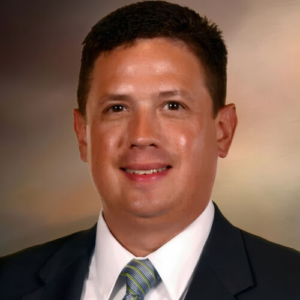
Dallas Morisette
Research Assistant Professor, Electrical and Computer Engineering
Purdue University
Topic: SiC Power MOSFET Design from the Ground Up
Biography
Prof. Dallas T. Morisette is a Research Assistant Professor in the Elmore Family School of Electrical and Computer Engineering at Purdue University. He received a BS from Walla Walla College in 1993, and the MS and PhD degrees in electrical engineering from Purdue in 1997 and 2001, respectively. His thesis research on the early development of SiC Schottky diodes was performed under the direction of SiC device pioneer Prof. James A. Cooper. After graduation he gained experience in optoelectronics, BioMEMs, and 2D-materials through a series of startup ventures, returning to Purdue in 2010. Since then, he has focused on SiC MOS physics and characterization, and advanced trench MOSFETs and IGBTs. He has co-authored more than 50 journal and conference publications, primarily in SiC device design, simulation, process development, and fabrication technology.

Brij Singh
Electrification R&D Manager and Power Electronics Technical Fellow
John Deere Inc.
Topic: EV Inverter and Applications of Power Electronics in Hybrid Powertrain
Biography
Dr. Brij Singh is Electrification R&D Manager and Power Electronics Technical Fellow at John Deere Inc., USA. He has earned degrees in electrical engineering from various schools in India. In 1996, he joined the École de Technology Supérieure, Université du Québec, Montreal, Canada, as a PDF. In 1999, he joined Concordia University, Montreal, as a Research Fellow. In 2000, he joined the Department of EECS, Tulane University, New Orleans USA as an Assistant Professor. In 2007, he joined John Deere, where he is the Region 4 Manager for External Relationships. Dr. Singh has published over 100 research papers. He has been granted 38 US patents, one trade secret, and has over a dozen pending patents.
At Tulane University, Dr. Singh received four teaching awards. At John Deere, he has received three innovation and one collaboration awards. He is the winner of the 2020 IEEE Power Electronics Emerging Technology Award. In Feb 2020, he was awarded the “Title of John Deere Technical Fellow in Power Electronics Engineering”. In June 2023, the US Department of Energy recognized Dr. Singh’s outstanding contributions and insightful technical expertise by giving him the “Distinguished Achievement Award”. In 2022, Dr. Singh was elevated to an IEEE Fellow. He is an IEEE Power Electronics Society Distinguished Lecturer (PELS DL), and lives with his family in West Fargo, North Dakota, USA.
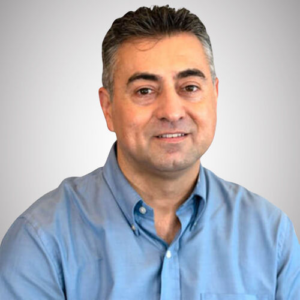
Victor Veliadis
Executive Director and CTO
PowerAmerica
Topic: SiC Fabrication in a SiC Fab
- Introduction to SiC material properties and key applications
- SiC process technology: etch, metallization and Ohmic
- contact formation, doping, gate oxide, edge termination
- SiC fab infrastructure
- Last barriers to mass commercialization
- PowerAmerica’s catalytic impact
Biography
Dr. Victor Veliadis is Executive Director & CTO of PowerAmerica, a member-driven Manufacturing USA Institute of industry, universities, and national labs accelerating the commercialization of energy efficient silicon carbide and gallium nitride power semiconductor chips and electronics. At PowerAmerica, he has managed a budget of $156 million that he strategically allocated to over 210 industrial and University projects to catalyze SiC and GaN semiconductor and power electronics manufacturing, workforce development, and job creation. His PowerAmerica educational activities have trained 430 full-time University students in collaborative industry/University WBG projects, and engaged over 7000 attendees in tutorials, short courses, and webinars. In 2023, Dr. Veliadis won a $64M U.S. Department of Energy PowerAmerica renewal to further catalyze WBG power technologies.
Dr. Veliadis is an ECE Professor at NC State University, and an IEEE Fellow and EDS Distinguished Lecturer. He has 27 issued U.S. patents, 12 book chapters, and 163 peer-reviewed publications to his credit. He is a sought-after speaker with over 180 keynote/tutorial/invited presentations including keynotes at ICSCRM, APEC, ECCE, ECPE, IFWS, and WiPDA. Prior to entering academia and taking an executive position at Power America in 2016, Dr. Veliadis spent 21 years post-PhD in the semiconductor industry where his work included design, fabrication, and testing of SiC devices, GaN devices for military radar systems, and financial and operations management of a commercial semiconductor fab. He has received military training in the Army Infantry and is a third-degree black belt in Shotokan karate. Dr. Veliadis has a Ph.D. degree in Electrical Engineering from John Hopkins University (1995).

Jason Zhang
Vice President of Applications and Technical Marketing
Navitas Semiconductor
Topic: Next generation, High Power Density AI Data Center PSUs Enabled by GaN Power ICs
Biography
Jason Zhang is one of the co-founders of Navitas Semiconductor and serves as Vice President of Applications and Technical Marketing, overseeing the development and application of GaN and SiC products. He has over 25 years of experience in the power semiconductor industry and has previously worked at Motorola and Lucent Technologies Power Systems. Most recently, he served as Technology Director at International Rectifier. Jason holds a bachelor’s degree from Tsinghua University, a master’s degree in power electronics from Virginia Tech, and an MBA from UCLA. He has over 30 patents.
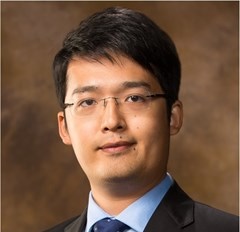
Yue Zhao
Associate Professor, Engineering
University of Arkansas
Topic: Potential Applications of SiC MOSFETs in Electric Power Distribution Systems
Biography
Yue Zhao (Senior Member, IEEE) received his Ph.D. degree in electrical engineering in 2014 from the University of Nebraska-Lincoln. Since August 2015, he has been with the University of Arkansas (UA), Fayetteville, USA, where he is currently an Associate Professor in the Department of Electrical Engineering. He also serves as the Executive Director for the National Science Foundation (NSF) I/UCRC on GRid-connected Advanced Power Electronic Systems (GRAPES). His current research interests include electric machines and drives, power electronics, and renewable energy systems. He has 4 U.S. patents granted and co-authored more than 150 papers in refereed journals and international conference proceedings. Dr. Zhao is an Associated Editor of the IEEE Journal of Emerging and Selected Topics in Power Electronics (JESTPE) and IEEE Open Journal of Power Electronics. He was a recipient of 2020 IEEE Industry Applications Society Andrew W. Smith Outstanding Young Member Achievement Award, and 2018 NSF CAREER Award.
